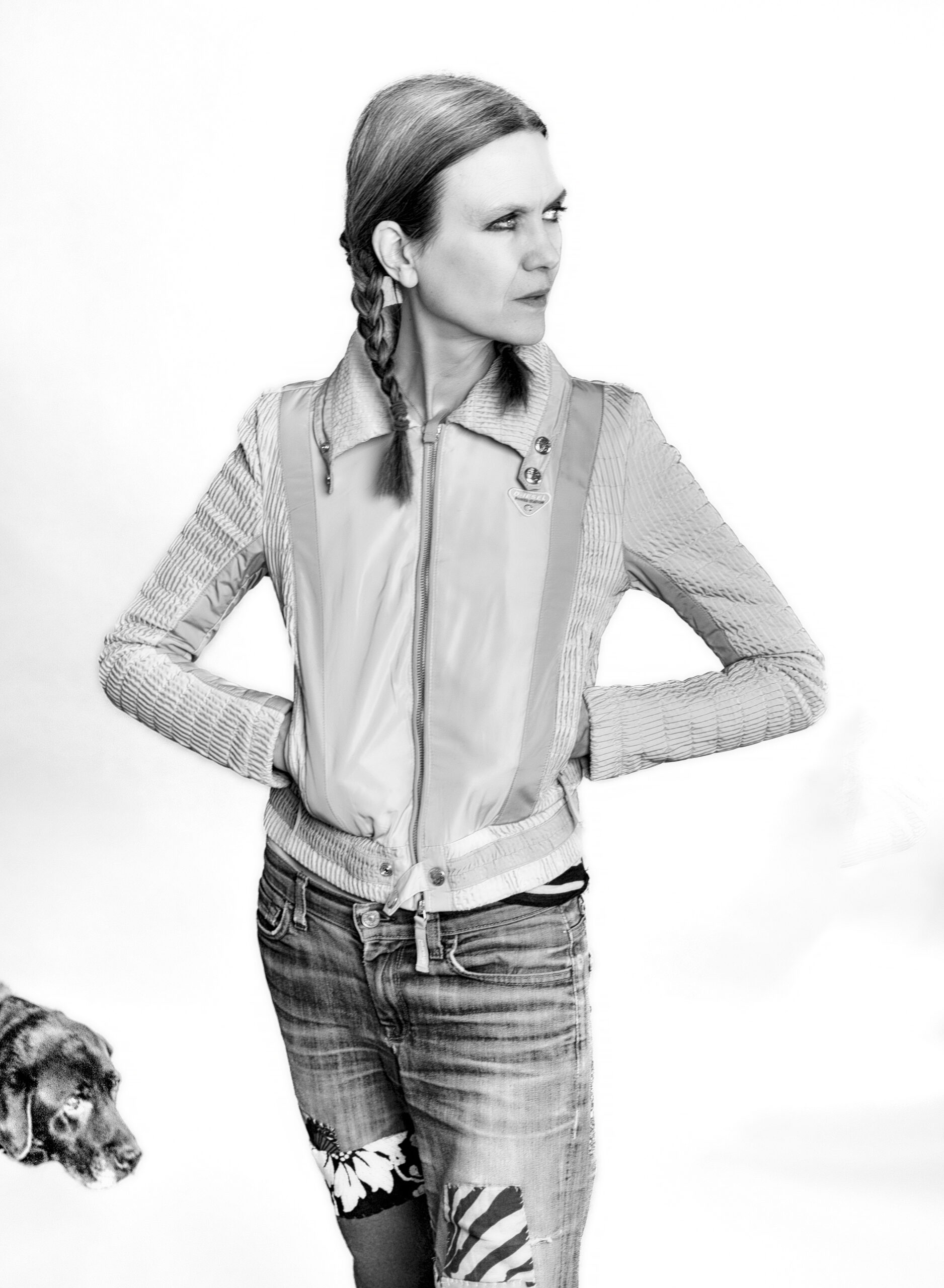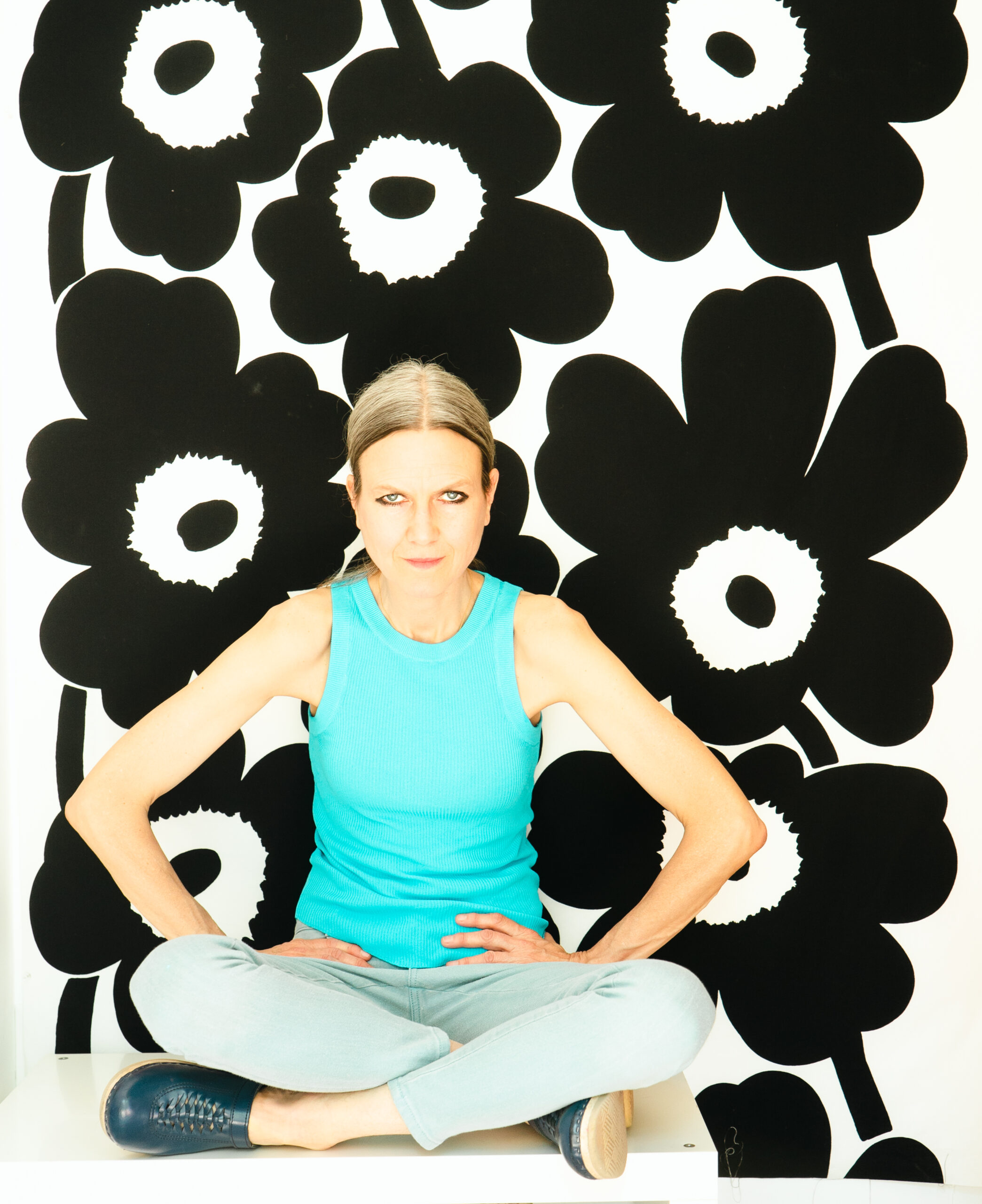Juliana Hatfield initially gained notoriety in the music scene as being one-third of her college band Blake Babies, who became a major hitter in the Boston alternative college rock scene of the ‘80s and early ‘90s. After the band’s initial break-up in 1991, she benefited from the post-Nevermind mainstream alternative explosion, and, as a solo artist, she released two successful albums and was then signed to Atlantic Records.
Through working with the likes of The Lemonheads and with heavy rotation on both MTV and national radio, Juliana had a very successful career, epitomised, perhaps, by one North American tour where Jeff Buckley supported her. Yet, for Juliana, the memories of this time are bittersweet. “It is unfortunate that I had no confidence, back then, when I was getting all the attention,” Juliana tells Post-Burnout. “When I was getting the most attention, I had the least confidence. I was insecure. And I think I’m more happy about my abilities now and I’m more in charge with them.”
With waning public interest in alternative rock by the late ‘90s (in addition to a disagreement over what was to be her fourth studio album, God’s Foot, which was shelved and has still never officially been released, despite being leaked online), by 1997, Juliana – like so many other alternative artists who were welcomed with open arms only a few years prior – was unceremoniously dropped from her major label, but tenaciously continued and began releasing music with the Zoë label, before finding her own label, Ye Olde Records, where, through crowdfunding, she was able to keep her projects going via direct donations from fans, before signing with the Connecticut-based indie American Laundromat Records in 2015.

Courtesy of Sideways
In 2008, Juliana published her autobiography When I Grow Up: A Memoir, in which she cleverly demonstrates the contrast many artists of her ilk – who were experiencing the comedown from the major label boom of the previous decade – were going through, by weaving the major highpoints of her career with the journals from a then-recent 2003 D.I.Y. tour she had embarked on with her side project, Some Girls. When asked how she feels things have changed in the fifteen years since the book came out, Juliana responds, “I think that when everything died down, I thought of myself as just…readjusting to getting back to where I started with the Blake Babies, which was doing everything quietly, under the radar, doing a lot of it myself, doing it cheaply, inexpensively, and I feel like, since the book, I’ve been on that same trajectory, which is maybe not up so fast anymore or down so fast anymore, but I’m just on a kind of steady trajectory, making my music for a smaller audience, and maybe that’s not a very interesting answer, but that’s just the way it is.”
2023 has been a busy year for Juliana. On top of beginning a personal Substack and being involved with The Salt Collective’s latest album Life, she recently recorded a full album of Electric Light Orchestra covers, simply titled Juliana Hatfield Sings ELO, which is the third in the Juliana Hatfield Sings… album series (following two albums covering Olivia Newton-John and The Police, respectively), and is expected to release in November. “After I had done Olivia and The Police, I was thinking, ‘I should do an American band, just because I’ve covered an Australian and an English band, I should do an American, just to spread the love around the globe!’” she explains. “And I was going to do R.E.M. and I was listening – the process for me starts with going deep into the albums, and all the deep cuts, and relistening, and finding things I want to record – and I just became too overwhelmed with the amount of R.E.M. material that I had never heard, because I stopped listening to them at some point, and there were a bunch of albums after then, and I just felt there was too much study that I was going to have to do, and there were too many songs, and I lost my nerve with that one. And then, I don’t know, I just thought, ‘I love ELO, so let’s do that!’”
The first single off …Sings ELO was a cover of the band’s 1979 hit “Don’t Bring Me Down.” For Juliana, it was learning to play this song which made her reevaluate how she would tackle the entire album. She explains, “Well, first of all, I like the song. I love the song. It’s a very solid construction [Laughs]. It’s just kind of perfect. And I stupidly thought, ‘Oh, this will be easy to record; it’s so simple!’ So, then I started recording it, and I realised, ‘Oh, it’s deceptively simple! It’s actually really complicated.’ When you listen to ELO songs – especially a lot of the hits – they’re so catchy and they’re so delectable and it’s like ear candy, and you don’t think there’s any difficulty, even when there’s some crazy string stuff – ‘crazy’ in the sense that it’s innovative for strings, you know? And it’s in rock music and it’s not expected – it still all just makes so much sense in the context of the songs, but when you break it down…
“I actually did a first version of ‘Don’t Bring Me Down,’ which was a total failure and I had to start over, but the first version, I tried to play drums on it, because I thought, ‘Oh, it’s just one beat that they looped. How easy is that? I can play that loop myself.’ But there’s so much more going on; it’s not just a loop, and it was a disaster, the first version. So, then I just had to rework it and try not to match their sounds and try to just find my own groove. It’s kind of hard to talk about the process of recording because it’s going into another world of shadows, you know? It’s like going into a brain. It’s hard to describe. It’s a process of trying…you start playing the song, you start trying to find your own groove, rather than copying the groove of the band. It’s like, you’ve got to play it over and over again until you find the groove in your own bones, and then you go from there.”
When asked if she felt that recording full albums covering other artists has influenced her own songwriting, Juliana responds, “I think that whenever I’m recording covers, I’m hoping that it will influence my own writing because when I write my own songs, I always fall into patterns – just the same kinds of chord progressions, and chord movements, same kinds of melodies – and sometimes I feel like a broken record and I want to be pulled out of my habits. But then I always find that after I’ve done a covers album, I keep reverting back [Laughs] to my own habits. It’s the weirdest thing. But I think I just have this songwriting gene in me, and I can’t really alter it that much, although I keep trying.”
Juliana Hatfield’s new album Juliana Hatfield Sings ELO is available from November 11th, and can be preordered here. You can read Juliana’s Substack here and can follow her on Facebook and Instagram.
For a more extensive discussion with Juliana where we go into further depth on the topics touched upon in this article, as well as working with Evan Dando, Paul Westerberg and Matthew Caws, The Salt Collective, her Substack, privacy, mental health, how being an artist now differs from when she began, her thoughts on social media, and more, tune into today’s episode of POSTBURNOUT.COM Interviews…, premiering at 17:00 (IST) on YouTube and available elsewhere afterwards.

Aaron Kavanagh is the Founder and Editor-in-Chief of Post-Burnout. His writing can also be found in the Irish Daily Star, Buzz.ie, The GOO, Headstuff, New Noise Magazine, XS Noize, DSCVRD and more.

 POST-BURNOUT
POST-BURNOUT